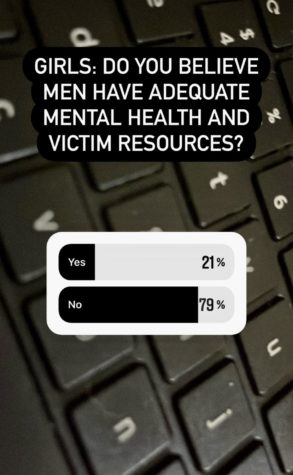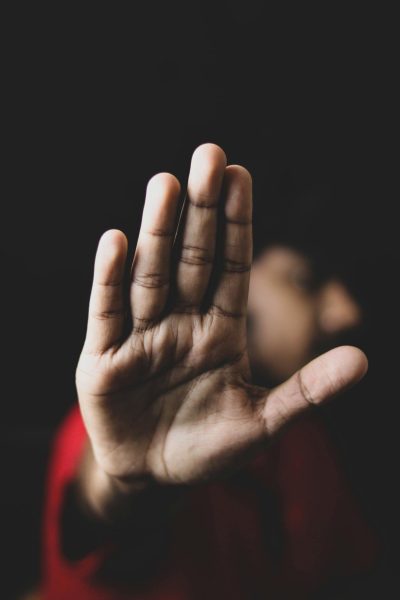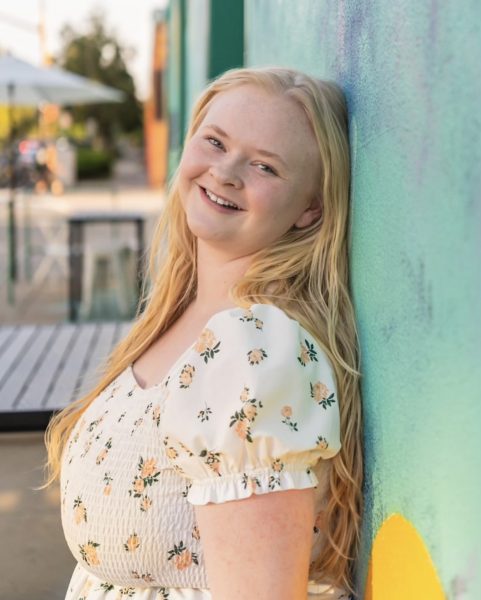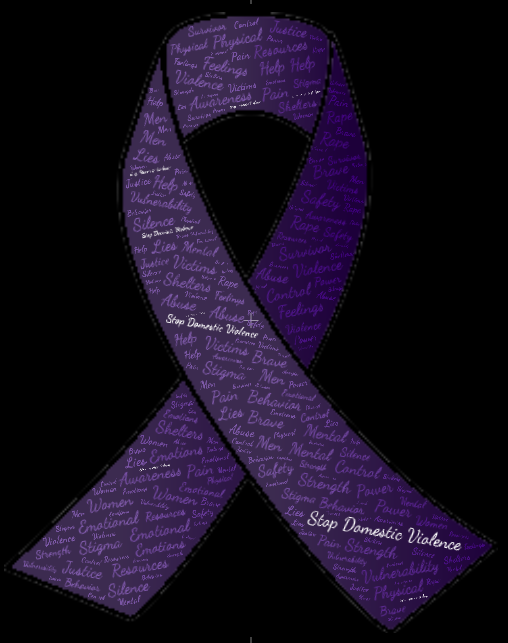Silent suffering: The hidden struggle of men facing domestic violence and the scarcity of support systems
In recent years, a growing number of women have bravely come forward with their stories of trauma inflicted by domestic violence. But here’s the problem: Almost exclusively women are talking about their experiences. Which is both incredible and entirely non-inclusive.
Garrow says, “I think the more that men are told, ‘it’s okay to cry,’ ‘it’s okay to have emotions,’ ‘it’s okay to show your feelings,’ I think the more of that that comes along, I think that will help a male if they’re ever put into that situation at some time.”
In recent years, a growing number of women have bravely come forward with their stories of trauma inflicted by domestic violence. But here’s the problem: Almost exclusively women are talking about their experiences. Which is both incredible and entirely non-inclusive.
More men have decided to report abuse in recent years, but many remain silent in the face of societal prejudices about masculinity and fear that they won’t be believed. Women in domestic violence scenarios have access to a significant number of resources, including women’s shelters, specialized counselors, and more specific organizations like the National Domestic Violence Hotline, and the National Coalition Against Domestic Violence.
Despite the fact that most of these resources do not exclude men, they are not built to support them either but rather ignore their issues and the obvious statistics. The Centre for Social Justice supports this fact by saying, “Support agencies often fail to recognize the abuse of men and overlook cases involving female abusers. Recent studies of Homicide Reviews highlight a lack of training and handling of male domestic violence: ManKind Charity reports that in 2021, out of 238 refugee spaces for victims of male domestic abuse, only 58% were committed to supporting male survivors.” The article goes on to explain that, “Another study conducted by Bristol University details how male victims seldom get asked about their domestic partnerships by health professionals.” The statistics paint a concerning picture. These shortcomings expose dangerous bias within support agencies. While domestic violence can affect anyone, the perception often remains skewed towards female victims. This can leave male victims feeling unheard, dismissed, and without a safe place to turn to for help.
There’s a clear need for improved training and education within support systems. Equipping professionals with the skills to recognize and address abuse regardless of gender is essential. Additionally, allocating resources towards creating more refugees and support programs specifically catering to male victims is crucial.
Underscoring the significant number of male victims, as evidenced by The National Domestic Violence Hotline report that “28.5% (45.4 million) of men in the US have experienced rape, physical violence, and/or stalking by a partner and 10% (16.2 million) reported it having a related impact on their functioning.” They also share that “4% (nearly 6.5 million) of men in the US having been injured as a result of intimate partner violence that included rape, physical violence, and/or stalking by an intimate partner.” Additionally, “1 in 7 men (13.8% or nearly 22.5 million) aged 18 and older in the US have been the victim of severe physical violence by an intimate partner in their lifetime.” Even more staggering, they report that 48.8% (in relation to women’s 48.4%) or 79.2 million men “have experienced psychological aggression by an intimate partner in their lifetime.”
Coupled with the knowledge that only 44% of women’s domestic abuse situations are reported, and domestic violence circumstances in which men are the victims are even more underreported, the real numbers behind abuse are likely unfathomable, considering the already heartwrenching statistics behind reported cases.
Apple Valley Counseling Services explains this concept in an article titled, “Why Men Are Less Likely To Report Being Victims of Physical Abuse.” They go on to say, “Most men have stated that seeking out help has been associated with a negative emotional impact. Seeking some type of help has often led to being victimized, which could cause them more anguish. A lot of men have also been silenced by social stigma. Denial, shame, fear, and embarrassment are just several obstacles that have been brought up. Consequently, most don’t think the abuse they have suffered is serious and minimize it to avoid being shamed. This often leads to men denying or covering up the abuse.”
Steve Garrow is a security guard at Arvada West and a former Northglenn Police Officer. He previously worked as a detective, undercover detective, SWAT, and Sergeant. He explains that should the police encounter a man in an abusive relationship, they would likely have a victim advocate come in, talk to the victim, and give them some brochures.
“If you had a man that was being abused who…didn’t have any place to go,” said Garrow, “you really wouldn’t have any place to be able to send them, to be able to help them.”
In a survey conducted on March 29th toward students at A-West, we found that 72% of respondents agreed that there are fewer resources available for men in abusive situations. This sentiment is in line with the growing — though still severely lacking — awareness and advocacy for men’s issues in the realm of domestic violence. While there are still many misconceptions and stigmas surrounding men as victims of violence, it is encouraging to see that the majority of A-West students recognize the need for more resources and support for men in these situations.
Throughout their lives, men receive cliched and misogynistic messages like, “Be strong,” “You’re the man of the house,” or “Men don’t cry.” Unfortunately, there exists a preconceived notion that men cannot be victims. This stigma perpetuates false ideas about what true strength entails, burdening men’s shoulders with unnecessary expectations.

“I think the more that men are told, ‘it’s OK to cry,’ ‘it’s OK to have emotions,’ ‘it’s OK to show your feelings,’” said Garrow. “I think the more of that that comes along, I think that will help a male if they’re ever put into that situation.”
A-West students concur. In another survey directed only towards male-identifying students at Arvada West, 73% of participants said they experienced pressure due to societal stigmas that dictate men should exhibit strength and suppress their emotions. Furthermore, 87% reported being admonished to be strong simply because they were male.
Furthermore, issues exist within our own government and law enforcement. Biases are corroding our justice system, from the media to the judicial system itself.
Gender bias within law enforcement, for example, manifests in several ways. It may lead to misclassifying or underreporting sexual assault or domestic violence cases, inappropriately concluding that sexual assault cases are unfounded, failing to use sexual assault kits, interrogating victims rather than interviewing them, treating domestic violence as a family matter rather than a crime, failing to enforce protection orders, and neglecting same-sex domestic violence cases. When gender bias influences the initial response or investigation of an alleged crime, it can compromise law enforcement’s ability to ascertain facts, determine whether an incident is a crime, and build a case for effective prosecution and accountability of the perpetrator.
Another issue is media influence. Biases in media reporting can perpetuate stereotypes and shape public perception. Media coverage may inadvertently reinforce harmful narratives about domestic violence, affecting how society views male victims and female perpetrators.
In a study from the National Library of Medicine by Samantha Gavin and Nathan Kruis, they explain, “A theoretical explanation for a relationship between violent media exposure and the perpetration of violent crime can be found in Cultivation Theory. Cultivation Theory assumes that “when people are exposed to media content or other socialization agents, they gradually come to cultivate or adopt beliefs about the world that coincide with the images they have been viewing or messages they have been hearing” Essentially, this cultivation manifests into individuals mistaking their “world reality” with the “media reality,” thus increasing the likelihood of violence.”
In the context of domestic violence, a steady stream of portrayals where women are the primary victims and men are the perpetrators can cultivate a societal blind spot. When reality contradicts these media portrayals, as is the case with male victims, it can be difficult to accept. This cultivated belief system can lead to disbelief, denial, and a lack of empathy towards men facing abuse.
This highlights the need for more nuanced language in the portrayal of domestic violence in media. By showcasing a wider range of experiences, we can challenge these stereotypes and cultivate a more understanding society, one where all victims, regardless of gender, are acknowledged and supported.
Likely even worse, the judicial system itself encourages neglect within our accountability system. Within the judicial system, bias can impact sentencing decisions, bail determinations, custody arrangements, and protective orders. These biases may disproportionately affect men who are victims of domestic violence, leading to unequal treatment and outcomes.
Biases — whether explicit or implicit — erode the integrity of our justice system, affecting everything from initial police responses to court proceedings. Recognizing and addressing these biases is crucial for ensuring fair and equitable treatment for all victims and survivors of domestic violence, regardless of gender.
According to Yannetti Criminal Defense Law Firm, “Studies from the National Library of Medicine revealed that men can experience abuse of the legal system by women through false domestic violence accusations and that there is a general bias against men in court.” The article continues to elaborate, “The National Library of Medicine studies showed that 72% of men who contacted the U.S. Domestic Abuse Helpline for Men reported that their female abusers had obtained a restraining order against them based on false accusations and used the court system to gain custody of children. Additionally, many studies found that men were not given a fair hearing in domestic violence court proceedings and that they often had a harder time proving their case. Men also tended to lose custody more often.” It’s important to recognize that domestic violence affects both men and women, and everyone deserves a fair and just legal process, however, this is clearly not the case, as these findings highlight destructive social issues related to male victimization.

Sheltering Wings explains, “Just as women have long fought to be believed when they report abuse, men face a similar fight – and similar biases and prejudices. In an 11-year study reported in the journal BMJ Open, researchers found that men avoid seeking assistance because they fear people won’t believe them and/or disrespect them for not being masculine.” This quote accurately highlights the societal dismissal of men facing domestic violence. Traditional masculinity stereotypes portray men as strong and unemotional. This creates a situation where men who are victims of domestic violence fear being seen as weak or unmanly if they come forward. This fear can be a significant barrier to them seeking help and escaping abusive relationships.
Domestic violence is a complex issue that can affect anyone regardless of gender. But we have to keep in mind that it is a painful reality for men as well, whom are being shrouded in a cloak of silence woven by toxic masculinity and gender stereotypes. Men are expected to be stoic figures, pillars of strength, but that strength shouldn’t have to endure abuse in sielce. One one deserves to feel unsafe in their own home and to be controlled by fear.
Imagine the strength it take to break free from that silence, to defy expectations and fight for your safety. We can create a world that doesn’t meet men with skepticism and disbelief, and shatter the stereotypes that confine men and by building a support system that reaches out to all victims, regardless of gender. Let’s make it clear: domestic violence is wrong, no matter who the victim is. Together, let’s ensure that everyone has a safe place to turn, a hand to hold, and the courage to know they aren’t alone.
If you or someone you know requires help, access this hotline and be connected to someone. In an emergency, however, please call the police first.

Maci is a senior and a four-year member of The Westwind staff, now in her second year as Editor-in-Chief. She fell in love with journalism freshman year...



